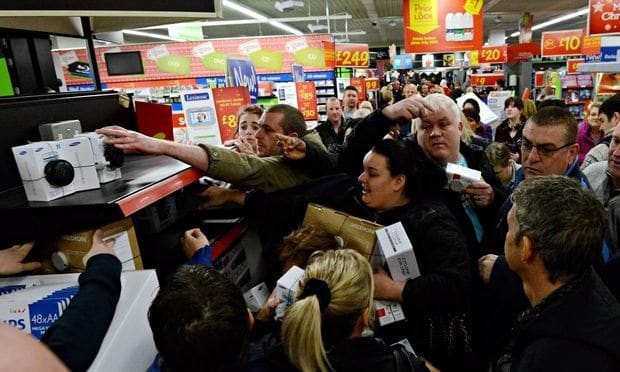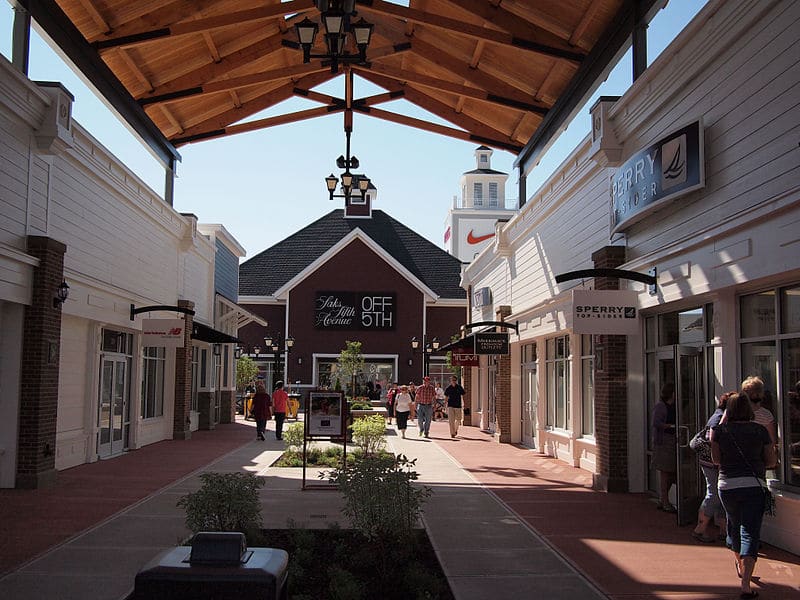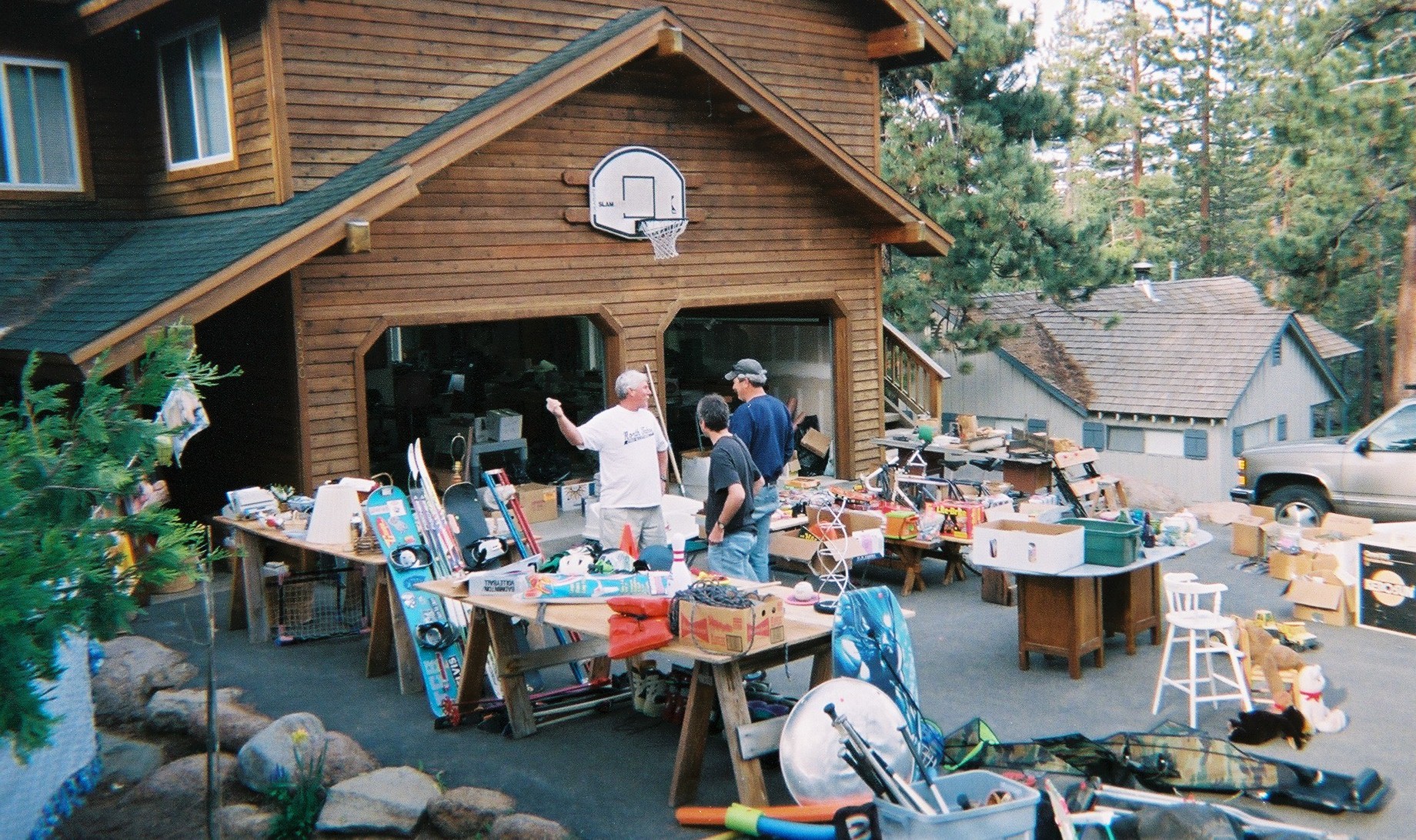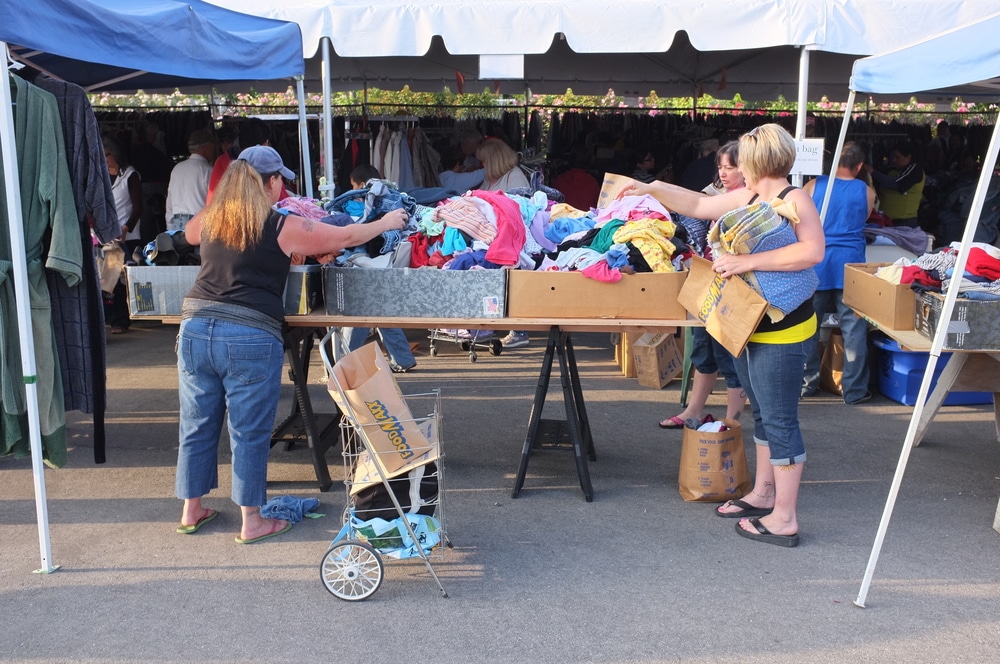21 сентября 2018
Не секрет, что американский английский отличается от истинного, британского. Если в Англии мы пойдем в shop, то в Америке это уже будет store. Конечно, вас поймут, если вы используете «неродное» слово для этого региона. Но если вы знаете американские аналоги английских слов, то вы будете намного быстрее пониматься все вокруг и отлично ориентироваться на местности. Мы выбрали самые популярные слова, которые вы можете встретить везде: в аэропорту, магазине, ресторане и просто прогуливаясь по городу.
British English — American English
Быт
- bin – trash can – мусорное ведро
- lift – elevator — лифт
- flat – apartment – квартира
- autumn – fall – осень
- cooker – stove – кухонная плита, печь
- tap – faucet – водопроводный кран
- postal code, postcode – zip code – почтовый индекс
- dustbin – garbage can, trash can – бак для мусора
- rubbish – garbage, trash – мусор
- surname – last name, family name – фамилия
- holiday – vacation – каникулы, отпуск
- queue – line – очередь
- cinema – movie theater – кинотеатр
- film – movie, film – фильм
- mobile phone, mobile – cellular phone, cell phone – мобильный телефон
- bill – check — счет
- book a seat – reserve a seat – забронировать место
Одежда
- trainers – sneakers – кроссовки
- trousers – pants – штаны
- pants (трусы мужские и женские) – underpants (мужские трусы)
- purse (кошелёк) – purse (женская сумочка)

Город
- shop – store – магазин
- car park – parking lot – парковка
- taxi – cab – такси
- pavement – sidewalk – тротуар
- pharmacy – drugstore – аптека
- crossroads – intersection – перекрёсток
- underground, tube – subway – метро
- railway – railroad – железная дорога
- single ticket / a single – one-way ticket – билет в одну сторону
- petrol – gasoline, gas – бензин
Еда
- biscuit — cookie – печенье
- chips – French fries – жареный картофель
- crisps, potato crisps – chips, potato chips – чипсы
- sweets – candies – конфеты
- tin – can – консервная банка
Это была первая статья из серии «Британский vs Американский». В других статьях рассмотрим нюансы в написании слов, фонетике и грамматике. Stay tuned! 
Британский vs Американский: написание слов
Британский vs Американский: грамматика
Все статьи
Подписывайтесь на наши обновления
В нашей рассылке отсутствует спам (да, мы тоже его не любим ). Присылаем секретные учебные материалы,
анонсы мероприятий и скидки на наши курсы. Не пропустите! Отписаться можно в любую секунду.
Закрыть
Запишитесь на бесплатное занятие
На уроке мы вам расскажем и покажем, как работает методика Lingua Target, протестируем вас, составим подходящую программу обучения и ответим на все интересующие вопросы! Мы будем рады вас видеть!
Спасибо!
Ваше письмо успешно отправлено. Как только запрос будет обработан, мы свяжемся с Вами. Stay
tuned!
Произошла ошибка!
К сожалению мы не смогли отправить ваше сообщение, т.к. произошла ошибка сервера. Keep calm!
Закрыть
Узнать больше об этом курсе
Менеджер нашей компании свяжется с вами для подтверждения записи на курс.
Спасибо!
Ваше письмо успешно отправлено. Как только запрос будет обработан, мы свяжемся с Вами. Stay
tuned!
Произошла ошибка!
К сожалению мы не смогли отправить ваше сообщение, т.к. произошла ошибка сервера. Keep calm!
Закрыть
Опишите Ваши впечатления
Мы будем чрезвычайно рады как вашим положительным отзывам,
так и предложениям по улучшению курсов и условий обучени. Давайте сделаем English Forward лучше
вместе!
Спасибо!
Ваш отзыв успешно отправлен. Как только отзыв будет обработан менеджером, мы разместим его на сайте. Stay
tuned!
Произошла ошибка!
К сожалению мы не смогли отправить ваш отзыв, т.к. произошла ошибка сервера. Keep calm!
Закрыть
Ответим на все вопросы
Оставьте свои контактные данные, и наш менеджер свяжется с Вами в течение рабочего дня! До связи!
Спасибо!
Ваша заявка успешно отправлена. Как только запрос будет обработан, мы свяжемся с Вами. Stay tuned!
Произошла ошибка!
К сожалению мы не смогли отправить ваш отзыв, т.к. произошла ошибка сервера. Keep calm!
Закрыть
Как мы можем помочь Вам?
Мы будем рады ответить на любой интересующий Вас вопрос. Оставьте его в форме ниже, мы ответим на него в ближайшее свободное время!
Спасибо!
Ваш вопрос успешно отправлен. Как только запрос будет обработан, мы свяжемся с Вами. Stay tuned!
Произошла ошибка!
К сожалению мы не смогли отправить ваш вопрос, т.к. произошла ошибка сервера. Keep calm!
Закрыть
Хочу скидку
Хотите узнать о текущих акциях и предложениях? Оставьте нам ваш телефон и email, мы свяжемся с вами и предложим лучший вариант!
Спасибо!
Ваша заявка успешно отправлена. Как только запрос будет обработан, мы свяжемся с Вами. Stay
tuned!
Произошла ошибка!
К сожалению мы не смогли отправить ваше сообщение, т.к. произошла ошибка сервера. Keep calm!
While my forthcoming explanation is merely supposition, I believe the logic holds. The usage of shop versus store in each nation is likely derived from the settlement patterns of each nation along with the implementation of Modern English. Most linguists don’t recognize English in the Modern sense, as opposed to Early or Middle English, as existing until the 16th Century CE. During this time in England most items were commonly created in the home rather than purchased, with certain exceptions…works of metal, for instance. Even then the establishments creating such things, various smiths, metal, jewelry, etc., were small establishments…shops. Retail establishments usually didn’t have large stores laid in. Large stores were more community property or privately owned for the person’s/family’s use, i.e. graineries or warehouses. As such the English usage of ‘shop’ for a retailer other than a warehouse likely stems from this earlier understanding.
Americans, on the other hand, saw their country largely emerge in the 19th and 20th Centuries in the wake of the Industrial Revolution. By this time, Modern English was well established. While earlier settlements in the east of the nation saw home crafted items as more common initially. With the advent of factories, many of the homemade items became manufactured instead as prices dropped with the increase of production. American settlement was done more quickly than in England. In England villages spread out as the population grew, eventually having new villages established a short distance away from the original as lands at the first site became overpopulated. This settlement happened over centuries.
In America though, settlement happened over decades. New settlements were not always established near the old ones. Settlers traveled along trails and later railroads. Settlements often were separated by tens or hundreds of miles. As such at most settlements along these routes, large warehouses/stores were established to aid travelers and communities not near established communities with fully established artisan communities or factories from which to obtain crafted items. Additionally, even in areas with an abundance of one commodity, such as wood, metal or coal might still be scarce and as such a cooper or a foundry might not be around. Again Americans relied more heavily on general supply stores than small shops for their wares. This being the case, most Americans came to refer to the retailer from which they bought or traded as a ‘store’, whereas a specialty retailer that produced one type or a limited type of items, and thus often was contained in a smaller establishment, as a ‘shop’.
As such, typically when an American speaks of buying staple items, such as bread, milk, etc., they usually state, «I am going to the store,» versus, «I am going to the shop(s)». If going to a butcher for meat alone, that same person might say that, «I am going to the butcher shop,» or simply, «…the butcher’s,» but only if said shop is not part of a larger grocery store.
As a general rule though, if the item is a staple item, it comes from a ‘store’. Specialty items, like engagement rings, come from a jeweler or ‘jewelry shop‘.

By
Last updated:
April 13, 2022
Americans love to shop.
More importantly, we love to talk about shopping.
Whether you’re talking to a good friend or someone new, it’s an easy way to start a casual conversation.
So, next time someone asks you where you bought your shoes, make sure you can continue the conversation with these shopping vocabulary words and expressions.
Contents
- Essential English Shopping Vocabulary and Usage Examples for Smart Shoppers
-
- American Shopping Traditions
-
- 1. Black Friday
- 2. Outlet mall
- 3. Yard sale / garage sale
- English Vocabulary for Talking about Cheap Prices
-
- 4. To Bargain (verb)
- 5. “What a bargain!”
- 6. “A steal”
- 7. “A good deal”
- 8. 50% off / $10 off
- English Vocabulary for Talking about Expensive Prices
-
- 9. Overpriced
- 10. A rip off
- 11. Stingy
Download:
This blog post is available as a convenient and portable PDF that you
can take anywhere.
Click here to get a copy. (Download)
Essential English Shopping Vocabulary and Usage Examples for Smart Shoppers
American Shopping Traditions
When Americans talk about shopping, there are some events and places you may need to know more about. We have several shopping customs that may not exist in your country.
1. Black Friday
Every year, the day after Thanksgiving is the unofficial beginning of Christmas season. So, on the Friday after Thanksgiving, also called Black Friday, Americans begin their Christmas shopping. Almost every store has a huge sale (online and in the store), and many open early.
It’s not an official holiday, but since many Americans have the Friday after Thanksgiving off, you’ll see lots of people in malls and stores buying cheap gifts for their friends and family.
2. Outlet mall
An outlet mall is similar to a mall, but they’re not the same thing. Both have many stores in one location. At both you can buy a t-shirt from the Gap, then look at watches in Swatch.
However, there is one important difference: an outlet mall sells everything at a reduced price. Many of them are large and outdoors, and Americans will often spend a full day walking around outlet malls and looking for discounts. It’s a great place to look for sales.
3. Yard sale / garage sale
As you drive around America in the spring or summer, you’ll see large signs that say “Yard Sale” or “Garage Sale.” This is when people sell their old clothes, furniture and other items in front of their houses—in their yards or garages.
These sales are great places to find cheap used goods. Interestingly enough, it’s also one of the only times you can bargain in America. What does “to bargain” mean? Read on!
English Vocabulary for Talking about Cheap Prices
4. To Bargain (verb)
In many countries, you can bargain in stores and markets. You can ask a seller if it’s OK to pay less for an item you want.
This is not usually OK in America—except at yard sales. So, if you see a t-shirt for $4 at a yard sale, you can ask for a lower price and bargain with the person selling stuff. For example:
You: “This t-shirt costs 4 dollars, will you sell it for two?”
Seller: “How about three dollars?”
You: “Sure.”
5. “What a bargain!”
If you buy something for much less than normal, you can call that a bargain. You may also hear people say “what a bargain!” if you later tell someone you bought an item at a low price.
For example, maybe you’re ordering food and the menu says you can buy two hamburgers for $8. Normally it’s $14 for two. What a bargain!
Or maybe, you found a new phone on sale on Black Friday. It normally costs $150, but you paid $70. What a bargain!
Later, your best friend, Jackie, sees you using your new phone:
Jackie: “Is that a new phone? How much did it cost?”
You: “Only $70. It was originally $150.”
Jackie: “Wow! What a bargain!”
6. “A steal”
It’s wrong to steal—to take something without paying for it. But if someone tells you their new dress was “a steal,” that’s a very good thing!
That means they did not pay much for it. They paid so little that it almost felt like stealing. Actually, the meaning of “a steal” is similar to “a bargain.”
For example:
Jackie: “Look! This dress is only $10.”
You: “That’s so cheap. That dress is a steal! You should buy it.”
7. “A good deal”
Similar to “a steal” and “a bargain,” if something is a good deal, you paid a low price. However, “a good deal” describes the price not the object or item. If you want to use it to describe an object or item, you need to say “a good deal on [noun].” For example:
Incorrect: “My car was a good deal.”
Correct: “I got a good deal on my car.”
So, if Jackie is telling you about the car her sister bought, you might have one of these conversations:
You: “Your sister bought a new car? How much did she pay?”
Jackie: “She got a good deal. She only paid $5,000.”
You: “How much did your sister pay for her new car?”
Jackie: “She paid $5,000.”
You: “That’s a really good deal.”
You: “Was your sister’s car expensive?”
Jackie: “No, she got a good deal on her car. It was only $5,000.”
8. 50% off / $10 off
If a store is having a sale, many of their items will cost less than normal. This is called a discount. Usually you’ll see signs like:
50% off: The price is now 50% less than it was originally.
For example, a $200 sofa is now $100.
$10 off: You’ll pay $10 less than the original price.
For example, a $200 sofa is now $190.
10% off sale price: Sometimes, you can receive an additional discount on sale items.
For example, a $200 sofa is on sale for $150 with an additional 10% off. You’ll pay $135. Awesome!
Now, if you want to tell Jackie about the new sofa you bought you can tell her:
- “The sofa was 10% off.”
- “I got 10% off my sofa.”
- “The sofa was on sale for 10% off.”
All of these things mean the same thing: your new sofa was a bargain!
English Vocabulary for Talking about Expensive Prices
Not everything you buy is a good deal. Sometimes, you may pay too much or you may feel like you’re paying too much. Here are some expressions you may hear when that new shirt is just a little too expensive!
9. Overpriced
I like to go to two supermarkets to buy my food: Safeway and Whole Foods. At Safeway, the food is usually less expensive, but at Whole Foods they have more organic and healthy food.
Sometimes, I will see the exact same box of strawberries in both supermarkets, but they’re different prices. At Safeway the box of strawberries costs $2.50 but at Whole Foods the same box of strawberries costs $4.
When a store wants you to pay too much for something, that thing is overpriced. At Whole Foods, their strawberries are overpriced! If I want to save money, I’ll go to Safeway to find a good deal on strawberries.
More examples:
- Don’t buy that couch here, it’s way overpriced. I think you can find a cheaper couch elsewhere.
- Groceries at Whole Foods are kind of overpriced. You can find the same things at Safeway and they cost less.
- I like this winter coat, but it’s overpriced. I saw the same coat somewhere else and it was 50% off.
- The food at the new Italian restaurant is good but overpriced. There’s a pizza place nearby that has the same quality food for half the price.
10. A rip off
Sometimes, your strawberries are overpriced. Other times, they’re really overpriced. $10 for strawberries?!? Wow!
If you think a price for something is so expensive that it’s unfair, you can call that a rip off.
Generally, when we call something a rip off, we feel like someone is cheating us and we are angry about it. For example:
- Designer t-shirts are a rip off. Who wants to pay $90 for a simple t-shirt?
- Airplane fees are such a rip off. I shouldn’t have to pay to check my suitcase!
You can also use “rip off” as a verb. If a person makes you pay too much for something, you can say that person ripped you off. For example:
- The taxi ride should have cost $10, but the driver ripped me off. He charged me $20!
- I tried to bargain for this souvenir, but I still think I paid too much. The vendor definitely ripped me off.
- Really? You paid $50 for a pair of fake sunglasses? That shop ripped you off!
Grammar note: If you use “to rip off” as a verb, the object comes between rip and off. So, he ripped her off. They ripped you off.
11. Stingy
It’s not always the store that charges too much. Sometimes, the price is fair but you don’t want to spend much money.
If you’re unwilling to spend money—even when you should spend money—you’re stingy. Stingy is the opposite of generous.
For example:
- Don’t be stingy. You should spend more than $5 on your mom’s birthday gift.
- My new boyfriend is so stingy—he never gives enough for tip at restaurants.
- I don’t want to be stingy on this vacation. I want to go out to nice restaurants and stay in a comfortable hotel.
So, Where Did You Get Those New Shoes?
Next time you ask your friends about their new shoes, you’ll know exactly what to say. Ask them where they bought them, and when they tell you how much they spent we hope you’ll say “what a bargain!” and not “what a rip off!”
Knowing English vocabulary for specific everyday situations can be insanely useful, and you’ll need it to be able to get around. Aside from shopping, it’ll pay off to know how to talk about groceries and food, as well as money.
To learn these expressions, you should listen to a lot of English conversations. Besides paying attention to native speakers, you can also learn by yourself by watching English videos. YouTube has plenty (maybe too many) videos—make sure you search and study from the right clips, and turn on subtitles if they’re provided!
The language learning program FluentU can also help, since its library of English videos contains content related to everyday matters. Each clip has interactive transcripts and subtitles that show what the words mean and how they’re used in context. There are also flashcards and quizzes to help you review vocabulary.
As you expand your English vocabulary, you’ll be able to have more fun conversations. When Black Friday and other major bargains come along, feel free to join in on the excitement!
Download:
This blog post is available as a convenient and portable PDF that you
can take anywhere.
Click here to get a copy. (Download)
В этом видео я рассказываю про слова на тему «Шопинг» в английском языке. Если точнее, про слово shop и производные от него слова и выражения. Ниже представлен полный текст видео, слегка адаптированный для чтения.
Здравствуйте, друзья. Меня зовут Сергей, и сегодня мы с вами разберем слово shop в английском языке — не такое простое, как кажется на первый взгляд.
Итак, самое очевидное, простое значение этого слова – это конечно же магазин, то есть место, где продают товары,
Например:
I forgot my wallet in the shop. – Я забыл свой бумажник в магазине.
Есть такие составные существительные, в которых первая часть – это название какого-то товара, а вторая часть shop — это, значит магазин, в котором продают этот товар,
Например:
- flower shop – цветочный магазин,
- book shop – книжный магазин,
- record shop – музыкальный магазин, то есть магазин в котором продают пластинки, музыкальные записи.
Однако, shop это не только там, где продают, а также там, где продают услуги. Например, barbershop – это парикмахерская, это не место, где продают парикмахеров, это место, где оказывают парикмахерские услуги. Кроме, того shop это может быть мастерская — место где что-то ремонтируют или что-то делают, например, car repair shop – это автомобильная мастерская.
Также есть такое слово body shop — это, не магазин, в котором продают тела, а мастерская по кузовному ремонту автомобилей. Body – на автомобильном языке, это кузов автомобиля, body shop – это, место где его ремонтируют. То есть это такой гараж, мастерская, в котором ремонтируют кузов, занимаются кузовными работами.
Интересно, кстати, что есть такой косметический бренд The Body Shop – там используется игра слов, с одной стороны, это магазин, в котором «продают» тело, то есть продают красоту, в другом смысле, это, скажем так, место в котором ремонтируют тело человека. В общем, так или иначе это связано с красотой.
TO SHOP — «шопиться», ходить за покупками
Перейдем теперь к глаголу to shop – ходить за покупками. Например:
This is where we usually shop. – Здесь мы обычно совершаем покупки (сюда мы обычно ходим за покупками).
Часто этот глагол используется с дополнением: to shop for something — ходить за чем-то, например:
Lucy is shopping for apples. – Люси покупает яблоки.
То есть она ходит по рынку или магазину в поисках яблок.
BUY и SHOP — в чем разница?
Обратите внимание, что to shop, это не то же, что и to buy – покупать что-то. Когда мы говорим «Lucy is buying apples», имеется ввиду. что Люси прямо вот находится в процессе покупки яблок, она покупает яблоки.
Shop — это немножечко другое. «Lucy is shopping for apples» значит, что Люси ходит по рынку или по магазинам, в общем, отправилась куда-то на поиски яблок для того, чтобы их купить. То есть shop for something, это не просто покупать что-то, это отправиться за покупками.
Примеры:
What are you shopping for? — Что вы хотите купить? (за чем «шопитесь»)
Are you shopping for a gift? — Вы ищете подарок? (хотите купить)
I’d like to take you shopping for a prom dress. — Я бы хотел отвести тебя в магазин, чтобы ты купила платье на выпускной.
«I’ve been shopping for videocassettes, but I can’t find them anywhere» – «Я искал видеокассеты для того чтобы их купить, но я не могу их нигде найти». Посмотрите, если бы мы здесь использовали to buy вместо to shop, то получилось бы какое-то бессмысленное предложение: «I’ve been buying videocassettes… but I can’t find them anywhere» – «Я покупал видеокассеты, (то есть я за них уже расплачивался), но я не могу их нигде найти».
Ну тут не получается какого-то смысла, потому что… ну как это я их не могу нигде найти, если я их покупал?
Глагол to shop for something подразумевает не просто процесс покупки, а процесс самого шопинга, когда мы ходим за чем-то, ищем что-то.
Where do you shop for food? – Где вы покупаете еду?
Имеется ввиду в какое место вы ходите для того чтобы пошопиться, в плане продуктов.
SHOPPING — процесс покупки
От слова shop также есть производное shopping, то есть сам процесс покупки, с этим словом есть такое очень употребительное разговорное выражение to go shopping, то есть ходить за покупками.
Примеры:
I have to go shopping now. — Я должен сейчас пойти за покупками.
Let’s go shopping, I need a new shirt. – Давай сходим за покупками, мне нужна новая рубашка.
То есть под go shopping, мы подразумеваем просто сходить пошопиться, сходить по торговому центру или по магазинам, что-то смотреть или выбирать, необязательно что-то конкретное. Если мы говорим о том, что мы покупаем какие-то конкретные товары, то можно использовать выражение to go shopping for something.
Например:
I need to go shopping for some tools. – Мне нужно сходить за покупками и купить кое-какие инструменты.
То есть здесь имеется ввиду не просто купить, совершить покупку, а именно сходить, поискать, купить.
Мы могли бы сказать «I need to buy some tools» – это бы значило, мне нужно именно купить, приобрести, если мы говорим «I need to go shopping for some tools», это немножко другое. Мы подразумеваем сам этот процесс, когда мы ходим по магазинам, что-то покупаем.
SHOP AROUND — это не «шопиться вокруг»
Интересное выражение со словом shop — это to shop around. Shop around – это не значит покупать что-то «вокруг себя», это что-то вроде «прицениваться». Перед тем, как купить что-то дорогое, мы изучаем цены, сравниваем их в поисках наиболее выгодного подходящего предложения, вот этот вот процесс называется – shop around.
Примеры:
I need to buy a microwave, I’d like to shop around first.–
Мне нужно купить микроволновую печь, я бы хотел сначала посмотреть цены, прицениться, для того чтобы выбрать наиболее выгодное предложение.
Did you shop around when you were looking for your computer?
Ты изучал цены, сравнивал предложения, приценивался, когда искал новый компьютер?
Если мы говорим, что ищем наиболее выгодное предложение чего-то конкретно, можно сказать to shop around for something, например:
I am shopping around for a new house. — Я ищу новый дом.
В том плане что, я изучаю новые предложения, сравниваю их и смотрю какой дом мне лучше купить.
Don’t book the room yet. Shop around for the best deal. – Не бронируй сразу комнату, поищи сначала лучшее предложение.
Book the room, это значит «бронировать комнату», best deal – это «лучшее предложение», например, лучшая цена, лучшее предложение по каким-то, другим параметрам.
Прицениваемся к человеку
Выражение shop around for someone, часто используется в переносном смысле, когда мы «прицениваемся» к какому-то человеку.
Например:
She’s shopping around for a new husband. – Она ищет нового мужа.
То есть она изучает разных кандидатов и смотрит, кто лучше подойдет на эту ответственную роль.
Выражение TO BE IN THE MARKET FOR SOMETHING
Есть еще похожее выражение, там нет слова shop, но просто по смыслу похожее be in the market for something. В прямом смысле это значит «быть на рынке для чего-то». Имеется ввиду собираться что-то купить, как правило, когда речь идет о чем-то дорогом, ответственном, возможно редком
I’m in the market for a new car. – Я собираюсь купить новую машину,
Эта фраза звучит чрезмерно сложновато, на самом деле, но вообще такое выражение есть. И оно, как и to shop around for something, может использоваться в переносном смысле.
I hear that Lizzy was in the market for a new boyfriend. – Я слышал, что Лиззи ищет нового парня.
Имеется ввиду, что Лиззи изучает те варианты, которые «рынок» может предложить.
Здравствуйте! Меня зовут Сергей Ним, я автор этого сайта, а также книг, курсов, видеоуроков по английскому языку.
Подпишитесь на мой Телеграм-канал, чтобы узнавать о новых видео, материалах по английскому языку.
У меня также есть канал на YouTube, где я регулярно публикую свои видео.










